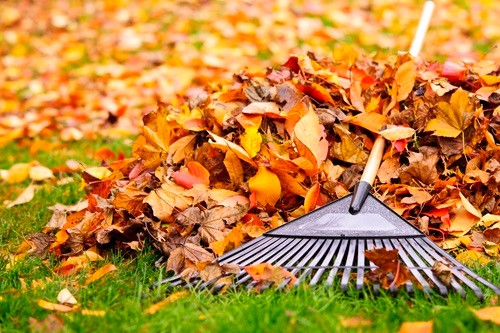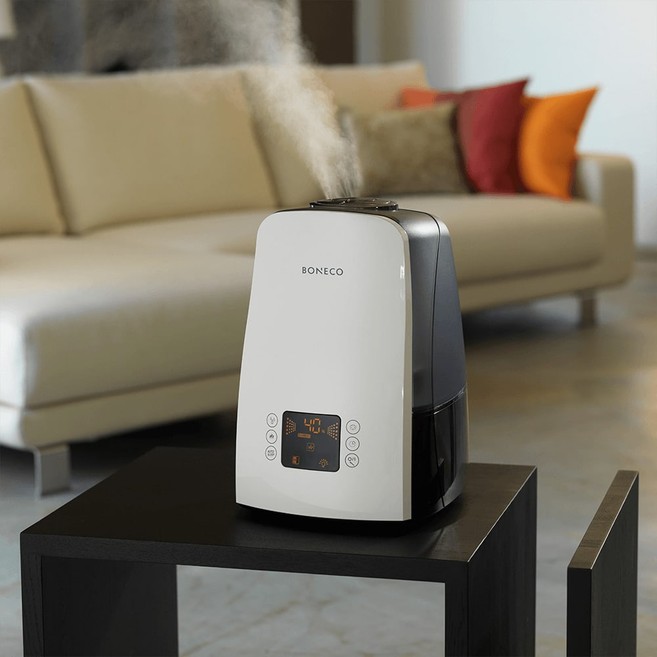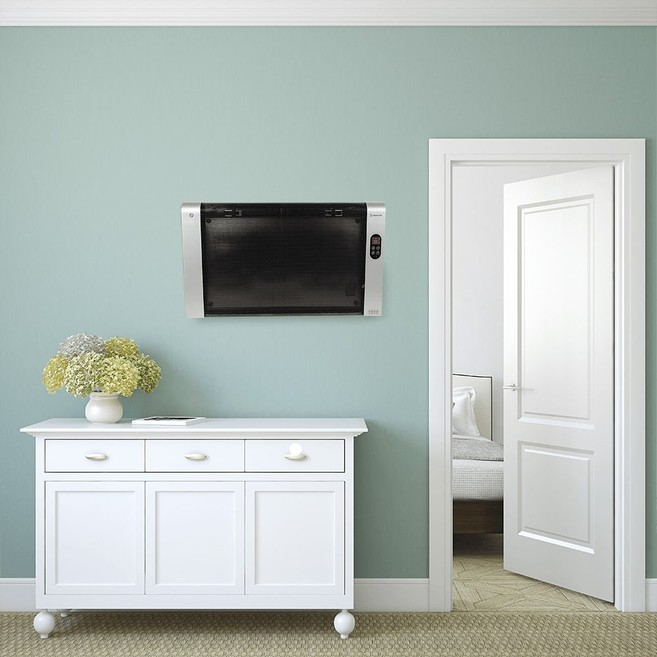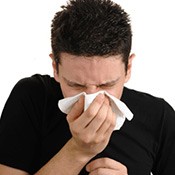If the spring allergy season is particularly brutal for you, don’t expect much relief during the fall or winter. A large number of winter allergies are actually caused by the same inhaled allergens that aggravate spring and summer allergies. This article explains how to avoid fall allergy flare-ups this fall:
- Why Fall Allergies Are a Concern
- Humidifiers Help Curb Cold Weather Symptoms
- Don't Stir up Dust
- Remove Allergens with an Air Purifier
- Other Quick Tips
- Still Have Questions?
Why Fall Allergies Are a Concern

Since we spend more time indoors during the chilly fall and winter months, many people experience an increase in allergy flare-ups due to dust mites, mold, pet dander, and other common indoor allergens. Our homes are sealed most of the winter, allowing these particles to build up inside.
During the winter months, we also have to worry about tracking in outdoor problems like moldy leaves or logs for the fire. Adding heat to your space can also dry out your air, leaving you with a cough and other irritating problems.
Humidifiers Help Curb Cold Weather Symptoms
As temperatures begin to fall, most people turn up the heat in their homes. While your heating system may bring welcome warmth, it can wreak havoc on the relative humidity of your home by drying out your indoor air. Excessively dry air can lead to:
- Dry, irritated sinus passages
- Bloody noses
- Itchy skin
- Cracked lips
- Sore, scratchy throats
- Aggravated respiratory ailments

Loss of moisture in your indoor environment can even damage your physical home and the belongings inside, causing cracking, warping, and separation in wood products.
To avoid these irritating symptoms and side effects, try adding a humidifier to your room or home. By delivering moisture to parched indoor environments, such as bedrooms, dens, and offices, humidifiers can help you maintain a comfortable relative humidity level, which the Environmental Protection Agency (EPA) states is between 45% and 50%. If you're unsure about the relative humidity of your area, a hygrometer can help you determine it.
There are a wide variety of humidifiers available with different technologies, moisture outputs, and room sizes. To learn more about humidifiers and how they can improve your indoor environment, visit our Humidifier Knowledge Center.
Consider a Space Heater Without a Fan

During summer months, your space heater or central heating system like picked up a few friends, notably: dust, dust mites, mold spores, pet dander, and more. When you turn your heater on, these irritants are distributed throughout your room, causing irritating allergy and asthma symptoms.
Additionally, space heaters with fans can stir up dirt and dust all winter long. If you suffer from winter allergies, consider adding a heater without a fan for this reason.
There are 2 great heater options that don't have fans:
- Micathermic Heaters: These are some of the best heaters for fall allergy-sufferers. They're quiet, efficient, and designed without a fan. Micathermic heaters use a panel that radiates heat quickly, and it gently heats your room evenly.
- Infrared Heaters: Great for heating the areas directly in front of them. Infrared heaters use energy waves to transfer heat directly onto people or objects.
Air Purifiers Remove Irritating Allergens and Particles
Using central heating doesn’t mean you can't avoid airborne allergy symptoms. By adding an air purifier to your home, you're able to combat a wide variety of airborne irritants, including dust, dust mites, pet dander, and mold. Plus, air purifiers improve the quality of your indoor air year-round! For those with severe allergies, asthma, or chemical sensitivities, there are even air purifiers that remove mold, bacteria, and odors.
For high-efficiency air cleaning, look for air purifiers with HEPA filtration. A HEPA filter, or High-Efficiency Particulate Air filter, effectively removes up to 99.97% of airborne particles 0.3 microns or larger, which includes dust mites, pollen, pet dander, and other microscopic irritant that aggravate allergies and asthma.
Other Tips to Avoid Fall and Winter Allergies
In addition to these indoor air treatment products, use these handy tips to manage or even prevent fall and winter allergy symptoms:
-
Avoid Known Allergy- and Asthma-Symptom Triggers: If damp leaves cause irritating symptoms, avoid yard work on windy days. If pet dander or dust cause coughing, itchy eyes, or stuffy noses, then we suggest vacuuming, or dusting more often.

- Wash Your Hands Often: Keeping your hands clean reduces the amount of allergens and viruses that you are carrying and potentially spreading to others. When your allergy symptoms are particularly intense, take a shower to wash away allergens that may be lurking in your hair. According to WebMD, showering also encourages you to change clothes, which can eliminate allergens clinging to your shirt or pants.
- Get Allergy Bedding: Restful sleep is crucial for staying healthy. However, if your bed has been invaded by dust mites, this can trigger acute allergy and asthma flare-ups. Allergy bedding–available in comfortable cotton, organic cotton, alpaca wool, and particle-resistant silk–can help eliminate dust mite populations and prevent new ones from forming.
-
 Know the Difference Between an Allergy and a Cold: Allergy symptoms and cold symptoms can easily be confused. The duration of symptoms and how quickly they appear are good indicators for determining if your sniffles and cough are allergy- or cold-related. For example, allergy symptoms typically appear quickly and all at once, whereas cold symptoms seem to develop more slowly and one at a time.
Know the Difference Between an Allergy and a Cold: Allergy symptoms and cold symptoms can easily be confused. The duration of symptoms and how quickly they appear are good indicators for determining if your sniffles and cough are allergy- or cold-related. For example, allergy symptoms typically appear quickly and all at once, whereas cold symptoms seem to develop more slowly and one at a time. - Take Advantage of Flu Vaccines: The Centers for Disease Control (CDC) recommends that everyone receive a flu vaccination each flu season. For more information on the vaccine and to find out where to get it, visit Flu.gov.
For more information and articles on controlling allergy and asthma symptoms, stop by our Knowledge Center or Indoor Health Matters blog.
Still Have Questions?
To order any of the air treatment solutions mentioned in this article or to browse other products, browse our online catalog. For help choosing the best indoor air treatment solution to suit your needs, call one of our friendly, knowledgeable air treatment specialists at 1-800-934-9194 for your free consultation.


